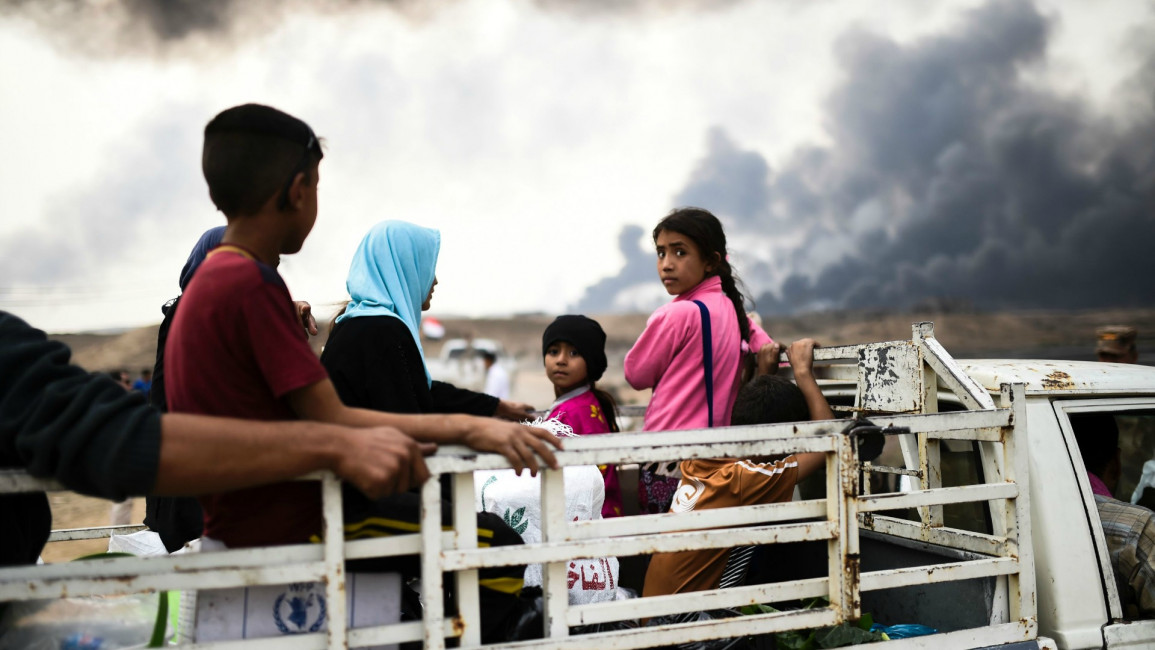
The Mosul illusion
How does a country die? Is the death formalised in the succession of components of territory or people into new states? Is it the demarcation of new borders that marks such a transition?
Or can the death of a country go unrecognised as formal sovereignty continues, while the de facto reality on the ground tells of a very different story?
Some 13 years after the US led invasion and toppling of the regime of Saddam Hussein, Iraq faces another turning point in its modern history. The viability of the state was put in real jeopardy when following the IS capture of Mosul in 2014, there was concern that the capital Baghdad could be next.
The reinforcement from abroad and political reorganisation that saw Prime Minister Abadi come to power, turned the tide and now after months of preparation the battle for Mosul is symbolic of a rejuvenated body politic in Baghdad.
Yet beneath the surface of an apparently more assertive state, huge questions remain as to the future of the country. Simple sectarian and ethnic binaries do not do justice to the history and the complexities of Iraqi society, while analysis that avoids any reference to how identity politics are playing a crucial role are equally guilty of a false approach to the country.
Meanwhile the coverage of the battle for Mosul sees the media settle into a comfortable format of war reporting.
Some are describing it as the most simple battle between "good and evil" that we've seen for some time in the region. IS for all its successes in branding itself as the world's premier terrorist organisation, has disguised the reality that the majority of its manpower is Iraqi.
 |
Simple sectarian and ethnic binaries do not do justice to the history and the complexities of Iraqi society |  |
Hayder al-Khoei of the European Council on Foreign Relations reminded viewers of BBC Newsnight last week that "ISIS is 95 percent an Iraqi organisation". This is not a battle between good and evil but rather one between Iraqis under different flags and calls of legitimacy.
With that in mind we must look beyond the reports coming from body armour-wearing embedded journalists and even the new innovations of "Facebook Live" streaming the battles, to question what happens after Mosul falls.
The first aspect of this is the practical component of what a victory might look like. Will Iraqi forces destroy the city in order to win it? Or will the combination of allowing IS to retreat to the west and prioritising civilian protection mean that damage could be contained?
 |
Abadi will have to step up from being an Iraqi politician to becoming an Iraqi statesman |  |
Preparations for a humanitarian displacement crisis are by no means sufficient for handling hundreds of thousands of newly displaced civilians, and leaflets dropped over the city last week by the Iraqi army advised people to stay in the their homes and even tell their children that the sounds of war were in fact thunder.
If Mosul is captured relatively intact, then the perennial question remains as to how it will be governed in the future. Professor Toby Dodge warned that there has been "no thinking for the political aftermath" of the fight for Mosul.
While lessons have been learned from the battles of Fallujah and Ramadi concerning the threat of sectarian militias extracting "victors justice," a bigger question remains as to the nature of the national project that residents of Mosul will be buying into if they are to believe that they are full citizens of an inclusive Iraqi state.
Prime Minister Abadi's accession was prompted by both external powers dissatisfaction with former Prime Minister Maliki's authoritarian mode of rule, but also by a sense that he was unable to paint a picture of Iraq as a country for all its residents. If Abadi can successfully win Mosul he will have the political capital and opportunity to outline a national vision that will prevent an IS-like entity emerging again in future.
 |
An Iraq for all Iraqis of the future will likely be more federalised |  |
An Iraq for all Iraqis of the future will likely be more federalised and have more power decentralised than ever before, with tough questions remaining as to the nature of relations with the Kurdish Regional Government and where internal administrative boundaries in the country lie.
On Abadi's post-Mosul to-do list are questions around Kirkuk, national reconciliation, the patronage of the state – with particular reference to its security forces and the status of militias - and sharing mechanisms around Iraq's oil wealth. These issues are all outstanding and have been overshadowed by the wider battle against IS and the road to Mosul.
These are not minor challenges for any politician and Abadi will have to step up from being an Iraqi politician to becoming an Iraqi statesman. However, without a vision for Iraq as a country for all its residents, the Mosul operation will amount to little more than a bandage over the challenges Iraq faces, without tackling the cause.
James Denselow is an author and writer on Middle East politics and security issues. He is a former board member of the Council for Arab-British Understanding (CAABU) and a director of the New Diplomacy Platform. Follow him on Twitter: @jamesdenselow




